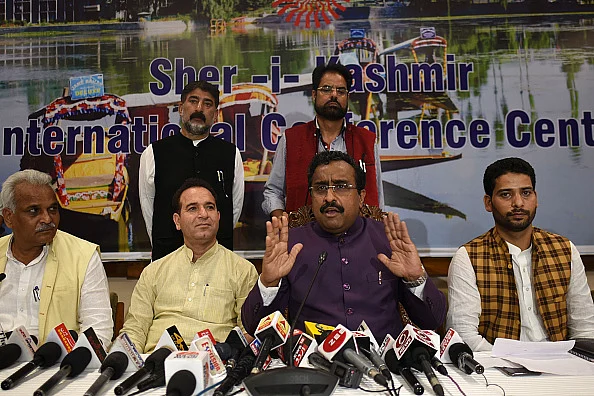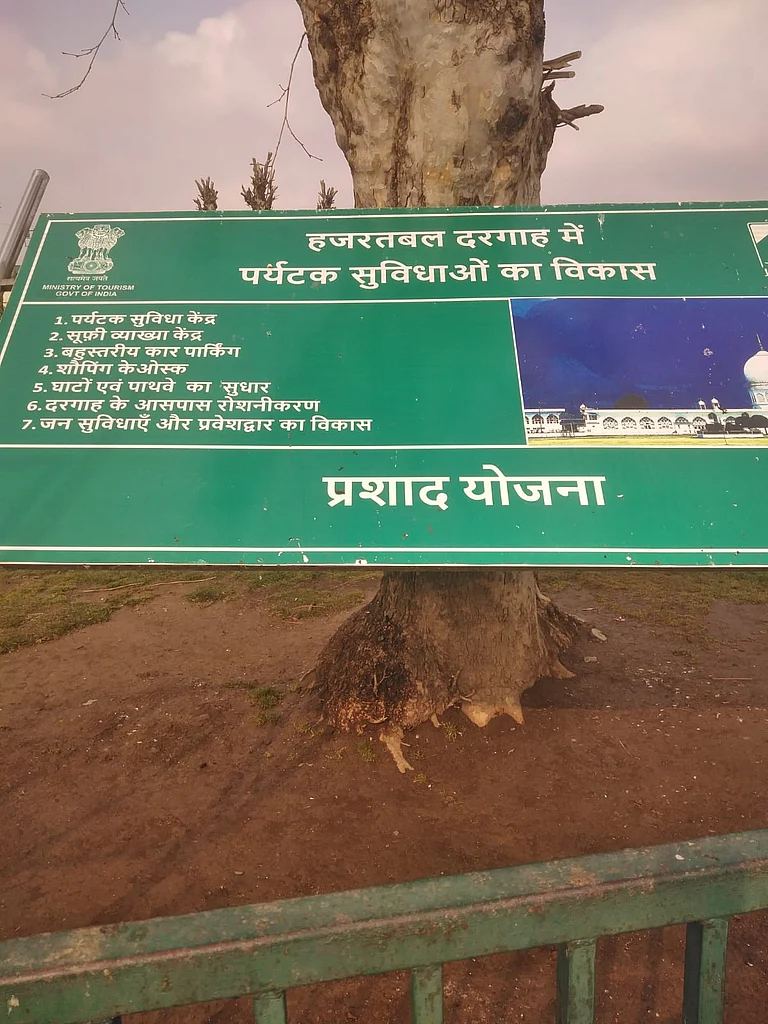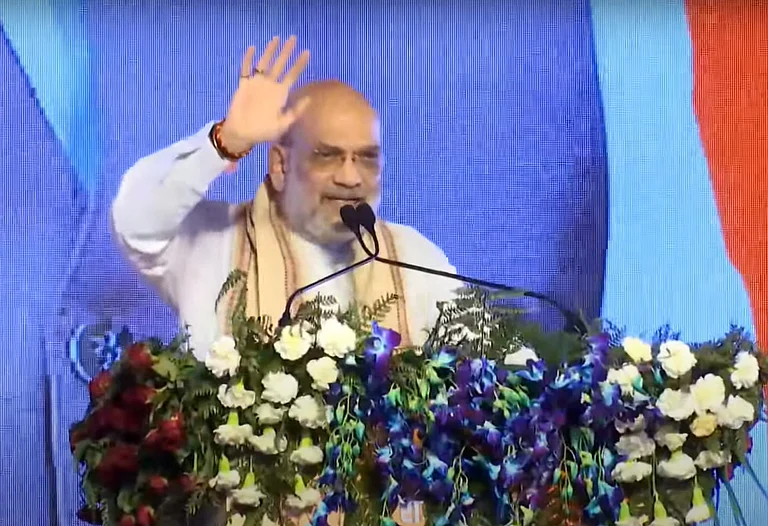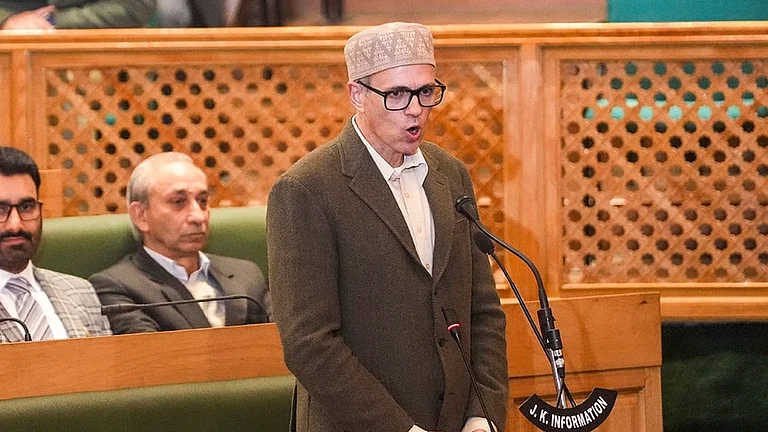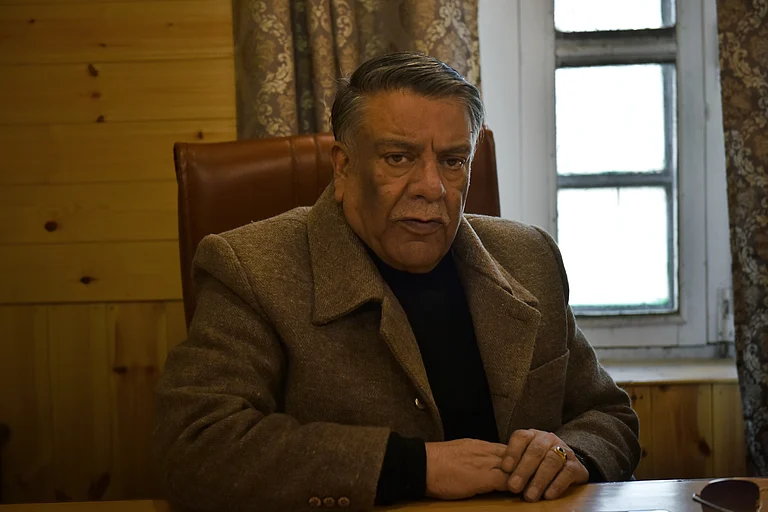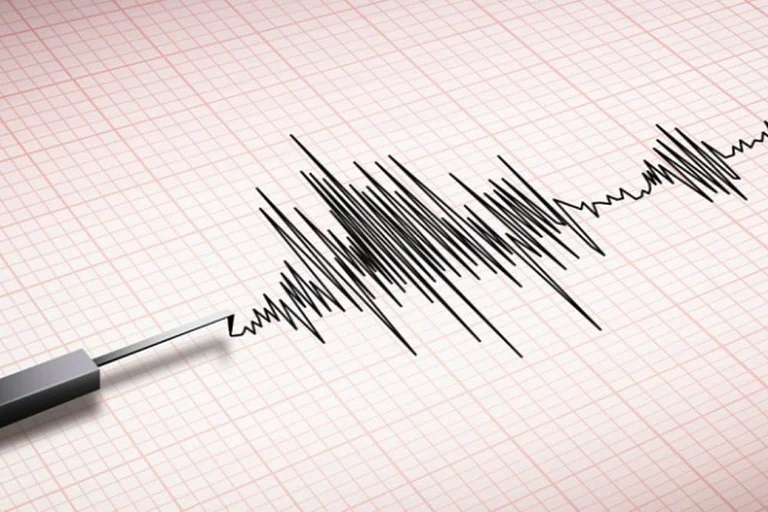As the National Conference gains momentum in Kashmir after the recent Lok Sabha polls and Congress strengthens its position in Jammu, the Bharatiya Janata Party (BJP) is responding with its old ‘Kashmir hand’ Ram Madhav. His appointment as J&K in-charge, says a political analyst, “means that the BJP is looking for an alliance in J&K and he knows people across the parties.”
Many within the BJP believe that if the Congress and the National Conference fall short of the numbers needed to form a government after the upcoming assembly elections, Ram Madhav could play a crucial role in shaping the outcome in favour of the BJP.
“Ram Madhav was brought to Jammu and Kashmir by the party in view of his 2014 experience of stitching an alliance between the BJP and the PDP. Maybe in case of hung assembly his vast experience will help,” says a BJP leader.
However, Ram Madhav is coming to a changed Jammu and Kashmir where the BJP did not have the confidence to contest from three seats in Kashmir in the recently-concluded general elections, and there is raging militancy in the Jammu region.
The Jammu and Kashmir Assembly elections will begin on September 18 and conclude with counting on October 4. This is the first Assembly election after the abrogation of Article 370 on August 5, 2019 and bifurcation of J&K into two Union Territories, J&K and Ladakh. Since Ladakh is a UT without a legislature, it will not be part of the electoral process.
The assembly is divided into 47 seats for Kashmir and 43 for Jammu. Previously Kashmir had 46 seats and Jammu 37. However, the 2022 Delimitation Commission allocated six additional seats to Jammu and one seat to Kashmir based on geographical considerations.
The upcoming elections will also be the first assembly elections in nearly a decade as the last was held 2014 leading to the formation of the PDP-BJP government. In the 2014 J&K Assembly election, BJP got 25 seats from Jammu while the PDP secured 28 seats from Kashmir, leading to PDP president Mufti Mohammad Sayeed holding prolonged negotiations with the BJP. The BJP interlocutor was Ram Madhav and the PDP’s was Haseeb Drabu.
Luv Puri, who has authored two books on J&K, notes that Ram Madhav was one of the most important intermediaries in stitching an alliance with the PDP even though both the parties were ideologically incompatible. “From one seat in 2002 Assembly elections, the BJP progressively grew from 11 in 2009 to its highest in 2014 which was 25 seats. The increase came as a result of heightened religious polarisation in the background of the pan-India Modi wave,” says Puri.
The party, Puri adds, cornered 25 out of 37 seats in Jammu whereas in Kashmir it drew a blank in all the 46 seats. “But even with its highest tally ever in J&K, the BJP couldn’t form a government and it had to find a partner. Displaying his astute political canniness, Ram Madhav convinced the local BJP leadership to be flexible with their agenda and he was able to simultaneously negotiate with the PDP. He was one of the architects of the common minimum programme between the two, a draft which clearly reflected ideological dilution of both the parties,” Puri adds.
In the Agenda of Alliance between the PDP and BJP, the BJP had accepted almost all demands of the PDP. In return, the PDP got an assurance from the BJP on putting Article 370 in deep freeze for six years. Both the parties agreed to follow former Prime Minister Atal Bihari Vajpayee’s “Insaaniyat, Kashmiriyat aur Jamhooriyat” approach toward Kashmir while stating that the coalition government would facilitate a sustained and meaningful dialogue with all internal stakeholders, which would include all political groups irrespective of their ideological views and predilections.
The AoA talked about confidence building measures such as enhancing people to people contact on both sides of the LoC; encouraging civil society exchanges, taking travel and trade across the LoC to the next level; and opening new routes across all three regions to enhance connectivity.
Though the common minimum programme conceded that both parties have historically held differing views on the Armed Forces Special Powers Act (AFSPA) and the need for it in the state, the AoA said the coalition government would examine the need for de-notifying ‘disturbed areas’. “This, as a consequence, would enable the Union Government to take a final view on the continuation of AFSPA in these areas,” the AoA reads.
“He (Ram Madhav) was the BJP point man who, along with Haseeb Drabu, was the architect of the PDP-BJP governance document that mostly promised safeguarding of Article 370, and the BJP kept its word in its first term in power,” says a Kashmir-based analyst.
However, when on June 19, 2018, the BJP pulled out of the PDP-BJP alliance government under Chief Minister Mehbooba Mufti, bringing down the state government a year ahead of the 2019 Lok Sabha polls, the decision to withdraw from the government was announced by Ram Madhav. Mehbooba Mufti had no idea of the decision, and she was in the civil secretariat.
At that time, Ram Madhav had said it had become untenable for the BJP to continue in the coalition government. “Keeping in mind that Jammu and Kashmir is an integral part of India and in order to control the prevailing situation in the state, we have decided that the reins of power in the state should be handed over to the governor,” Madhav had said. Madhav had blamed the PDP, which he called the main leader in the government, for the BJP’s decision. The state government, he had said, failed to meet the twin objectives of “restoring peace in the state, especially in the Kashmir valley, and encouraging fast development in three regions of the state”. “It was for these objectives that the BJP had decided to support the PDP three years ago,” he said.
On August 5, 2019, ahead of the abrogation of Article 370, Mehbooba Mufti was arrested and later booked under the Public Safety Act. While Mehbooba was in jail, her party’s most senior leaders joined Apni Party, considered a proxy of the BJP though the former denies this. Mehbooba has accused the BJP of splintering her party; and almost 10 years after embracing the BJP, the PDP is still trying to defend the alliance saying it saved Kashmiris and delayed the decision of the BJP to abrogate Article 370.
Jammu and Kashmir, Puri says, may not repeat the 2014 electoral result. “In the 2024 Parliamentary elections, the BJP didn’t field any candidate in Kashmir valley and its alleged proxies were rejected. In the Hindu-majority areas of J&K, there has been an erosion in the votes for the BJP. For instance, in the Hindu-majority Nowshera assembly segment along the Line of Control, which is the native place of the J&K BJP president, Ravinder Raina, the BJP trailed behind the National Conference,” says Puri.
“The BJP’s victory margin in the two seats it won in J&K, when compared to that of 2019, has fallen dramatically. It would have decidedly lost the old Jammu-Poonch Lok Sabha segment to the INDIA alliance had the controversial delimitation exercise not taken place. In this context, Ram Madhav, who has cultivated a lot of contacts in J&K across the political spectrum, is a person BJP is relying on for his deft skills to effect potential party crossovers and stitch post-poll alliance so that the BJP could possibly be in the seat of power like it in 2014.,” says Puri.
However, senior PDP leader Naeem Akhtar says when BJP couldn’t make any difference by fielding proxies, how come it will make difference in the RSS role in Kashmir.
"Ram Madhav knows Jammu and Kashmir intimately but that won’t help BJP. The BJP has disappointed its core supporters in Jammu, and in Kashmir, they have been on a mission to disempower people. Given the failure of their proxies in the general elections, I doubt they have any real chance. If they couldn't succeed with their proxies in Kashmir, how can they expect to succeed with RSS mantle?” says Akhtar.






